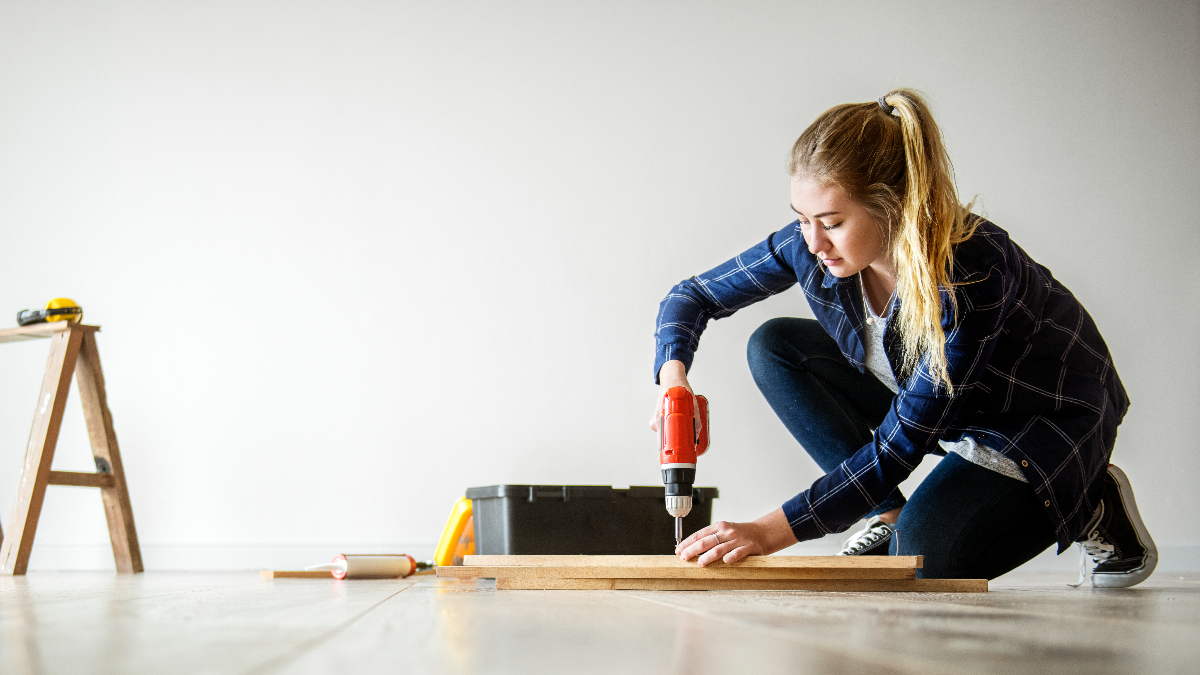
Renovating your house can be a great way to spruce up its looks and make it the home you’ve dreamed of.
However, there’s more to renovation than just throwing paint on the walls; there needs to be some planning involved, as well as knowing what to expect once renovations start.
The following list will give you an overview of the most important things to consider before renovating your house.
1. What is your budget?
Before you do any renovation, sit down and establish how much money you can spend. You will need to have an accurate figure that is realistic in order to keep spending under control throughout the project. If you are taking out a loan for your renovation, it’s likely that interest rates will be affected by inflation or deflation. You’ll need to factor that in when creating your budget.
Therefore, spend as much as is practical and make sure you can afford it. Do not stretch yourself too thin and do not be afraid to ask for help if the budget starts to get out of hand.
2. Consider having a cleaning professional for support when renovating your house.
This can be an immense help when it comes to cleaning up and getting the job done quickly and efficiently. Having a professional on hand can also help keep you safe during the renovation process. The cleanup services can ensure that all of the necessary safety precautions are taken while ensuring that the work area remains clean and organized. This will help keep the work area clean and organized, making the process smoother and less chaotic.
3. What are your priorities?
When renovating your house, it’s important to know your priorities. What are the most important features of your home that need to be updated or fixed? This will not only help you focus your efforts and money on the right places, but it will also help keep you organized and on track.
Do you want to rework your kitchen or make a bedroom bigger? Renovations vary wildly, and it’s important to keep this in mind.
If you want to update your bathroom, know that there are multiple ways you can go about it. You could stick with the tried-and-true, maybe taking out a tub or changing out some fixtures for some modern alternatives. Taking down walls within your bathroom to open it up may also be an option, as would converting a storage space or coat closet into a bathroom.
You can even consider turning your garage into living space or vice versa – sometimes this is the best way to gain the extra square footage you need without breaking the bank.
4. Have a schedule for the project.
When renovating your house, it is important to have a schedule for the project. This will help ensure that everything is completed on time and that you are not rushed through the process. It can also help to avoid any problems that may occur during the renovation.
If you need help with scheduling the renovation, the architecture company might be of assistance. If your family will be moving out during the renovation, it can be helpful to find alternative housing for you and/or your family. If you can find a family member or friend to allow you to stay with them, it will make the renovation process much easier.
In general, it is important that your schedule is realistic and feasible. If you have a lot of work to do, plan on spending at least six months renovating your house. You should also take into account any holidays or vacations that may occur during the renovation process.
5. Be mindful of safety during the renovation project
Renovating your house is a very exciting experience. You get to either add on or change the layout of rooms in your house and you get to choose exactly how they’re going to look when you’ve finished. You might want to reduce the number of bedrooms and create an ensuite in their place for instance. However, be mindful of your safety during the renovation project.
Stay away from electrical hazards by using extension cords properly and turning off all power at the power board when you’re not using it.
Use proper lifting equipment when moving heavy objects around, this will prevent back injuries that could be very detrimental to your health in the long run.
Wear closed-toed shoes when you know there is a lot of broken glass about, and always close doors behind you so small children or pets can’t wander off.
6. Set up a security system
Security systems may be expensive, but it’s worth it. There are many different types of security systems you can purchase and install at your home. The one that would suit your needs is best to decide by yourself or with the help of a professional installer. You can also choose to have a security system that is monitored or one that just notifies you when there is an intruder.
7. Insulate your home
Adding insulation to your home will help keep the heat in during the winter and the cool air in during the summer. It can also help reduce noise levels, making your home more comfortable to live in.
Insulating your home can also save you a great deal of money on your heating bills, as insulation helps reduce the amount of energy that is lost through cracks and holes in the structure of a building. In fact, there are multiple benefits to insulating your house that goes beyond just keeping the warmth inside a building in the winter.
8. Consider the age of your home
When renovating an older home, it is important to keep in mind that some features may need to be updated or replaced in order to bring the home up to code. For example, if your home was built before 1978, you will likely need to update the electrical wiring and plumbing to meet current standards.
Updating these features can be costly, but it is important to remember that it is necessary in order to keep your home safe and up to date. Older homes often have outdated features that can be dangerous for inhabitants, so it is important to take this into account when planning a renovation.
Are you considering renovating your current house to turn it into your dream house? Well, before starting the renovation process, these are many important things that you should consider.




